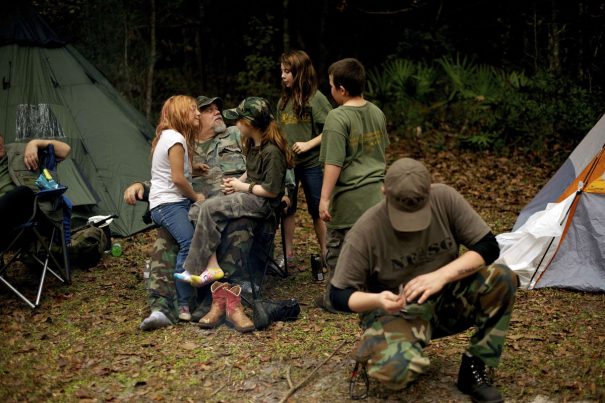One mistake is all it takes: 6 Dangerous survival myths, DEBUNKED
Wednesday, March 04, 2020 by Arsenio Toledo
http://www.bugout.news/2020-03-04-one-mistake-6-dangerous-survival-myths-debunked.html

There are many beliefs about survival and preparedness that circulate all over the internet. Some of these myths can be dangerous — especially if people continue to believe them– since they can lead people to accidents or even worse.
Here are six dangerous survival myths and here’s why they aren’t true. (h/t to Survivopedia.com)
Food is your number one priority
During a disaster, figuring out where to get your next meal from is definitely important. However, contrary to what people might think, it shouldn’t be your top priority. According to the survival rule of threes, you can survive for, at most, three weeks without food. This means that your main concerns, before focusing on finding food, should be to get a roof over your head and enough clean water for you and your family to drink.
You can only get hypothermia in cold environments
While hypothermia is generally associated with being exposed to the elements in cold climates, this is technically wrong. Hypothermia happens when your body loses heat faster than it can produce it, this means it can happen when you’re in a wet environment or when the wind is blowing, or even if you’re in a room that’s too cold either from poor heating or excessive air conditioning. The good news is that all you have to do to avoid hypothermia is to stay warm and dry. This means you have to look for shelter, build a fire and keep your body insulated. (Related: DIY prepper guides: How to make homemade charcoal.)
You can just fish or hunt for your meals
If you are a professional at hunting or fishing, then you don’t need to worry about food, since you’ve already spent hundreds — if not thousands — of hours to hone and sharpen your skills.
However, if you don’t have that level of expertise, you cannot rely solely on either fishing or hunting for your food supply, because, what happens if you spend your entire day hunting or fishing and you don’t catch anything? Furthermore, you cannot just immediately assume that wild game and fish will be plentiful in your part of the wild.
To address this, it’s best if you stocked up on non-perishable food in order to be prepared enough for when disaster strikes. If you feel like you can catch some animals in your immediate environment, focus on learning how to trap them either through snares, cages or other kinds of traps.
It’s easy to make a fire
Having either a lighter or a fire starting kit in your survival pack can make starting fires easier, however, the latter isn’t exactly a sure thing if, for example, you’re in a cold environment and you need to work with damp wood. Things become even more complicated if you find yourself in an unknown environment and you don’t have the resources to build and start a fire. You can try and make a fire using friction, of course, but even then it’s going to be extremely difficult.
If you don’t have one already, consider assembling a fire starter kit.
Wild plants can save you from starvation
It takes a great amount of knowledge and experience to learn which plants can actually provide you with sustenance. You can’t just pick up a random bush or flower and chew on it, especially if you’re in an unknown environment. Foraging, like hunting, takes hundreds or thousands of hours of study and practice to master. If you want to learn how to forage, study your local environment and ask trusted botanists and other plant experts which plants may be edible during emergency situations.
Drinking urine can save you from dehydration
If you have no problems with your shelter, then you can survive for three days without water. This can be stretched in ideal conditions to four or maybe five days. However, even if you’re really desperate, you absolutely should not resort to drinking your own urine. Pee consists of thousands of compounds that our body cannot digest and is therefore considered waste. Drinking your own urine will not provide you with any hydration and may instead make you ill and even more dehydrated. Instead, look to your immediate environment for alternatives. Numerous plants can contain water within them that you can extract or tap into, provided that you can correctly identify the water-bearing plants.
There are plenty of other survival myths out there that you may need to look out for. As a prepper, learn how to separate fact from fiction. Trust in the judgment of survival experts, in published books and in internet articles that use reputable sources.
Sources include:
Tagged Under: Tags: bug out, drinking urine, fire starter, fishing, hunting, hypothermia, off grid, preparedness, prepping, SHTF, survival, survival myths, survivalist, trapping, wild plants
RECENT ARTICLES
COPYRIGHT © 2017 · BUGOUT NEWS

